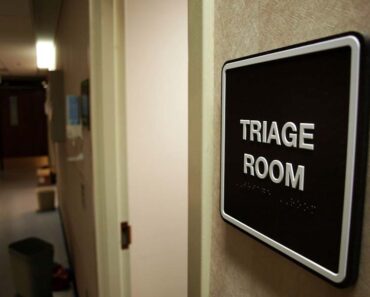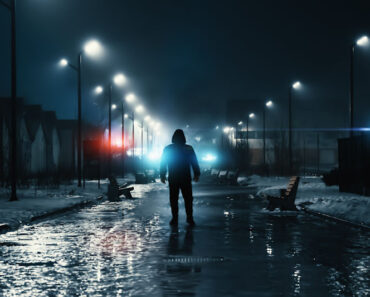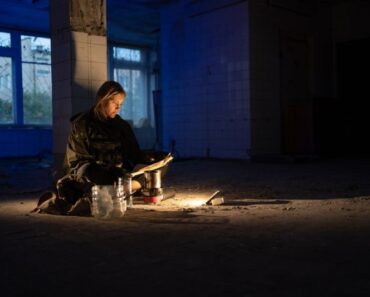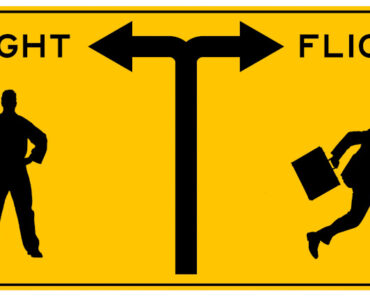We preppers are good at thinking of and thinking about TEOTWAWKI scenarios where there’s a breakdown in society. Some Martian landing on Earth and looking at prepping websites on the internet could quickly become convinced that their nearest planetary neighbor is about to be destroyed… quite possibly by several major disasters happening simultaneously. It’s not that those scenarios are unrealistic or that we should ignore that possibility. Rather, it’s just that we tend to put a lot of focus on them.
One of the common elements of all those TEOTWAWKI events is a breakdown of social order; specifically, a breakdown of law and order. That is a rather real possibility; but there’s really just as much of a possibility of existing community organizations making the decision to take matters in their own hands and start working as vigilantes, maintaining law and order. That’s actually a part of our history, and not just in the Old West.
In his book, “One Second After” and the sequels, William Forstchen does a great job of giving us a very realistic description of a post-EMP world, where everything we count on is brought low, including law and order. The people of Black Mountain struggle to survive, including fighting a small war against a cannibal gang which attacked their town.
But Black Mountain was working on defending their town, long before that attack came. Their first defensive issue wasn’t in the form of attacks; but in the form of a flood of refugees, both from the big city down the mountain from them and other who were filling the roads, trying to get to someplace where things were better than where they had come from.
Being a small town, many apparently had the idea that they had food and other resources enough to take care of those who showed up at their door. That idea is apparently still alive today, with people think of farming communities, filled with warehouses of food, when they think of small towns. Like many such ideas, that’s a false one.
Black Mountain had effective defenses, partially because of the terrain around the town and partially because the students of the college accepted the responsibility of being trained as soldiers, to protect the town which had welcomed them in.
But is that a realistic scenario?
First of all, there are few communities located in places where they are surrounded by mountains which are steep enough to defy those trying to get into the town on foot. While I’m sure there would be lots of people traveling along the roads, just because that’s an easier way to travel; I’m also sure that most of those people wouldn’t have any problem striking out cross-country, if that would get them where they want to go. Yes, there are city-slickers who won’t leave the comfort of the roads; but there are also lots of city-slickers who are used to going camping, hunting, hiking and other outdoor activities.
What this means is that there are few places where defending narrow chokepoints would be enough to keep people out of town. People would be infiltrating into town from all directions; in whatever way they could. Some would even sneak in at night, if they thought they might be caught.
While I’m sure there are those who would try to erect roadblocks in the case of towns like mine, I’m also sure they would do no good. Stopping people from coming into town on the road will just force them to go cross-country, probably through some farmer’s field.
Most small towns aren’t what they used to be, where everyone knew everyone else. I live in a small town and know very few of my neighbors, let alone people who live on the other side of town. So, there’s no easy way of identifying who belongs in town and who doesn’t. We couldn’t even issue ID cards, without electricity to print them.
My town is also in flatlands, with absolutely no natural barriers to keep people from coming in. Oh, there are some rather scraggly wooded areas, with trees that aren’t more than about a dozen feet tall. While they are fairly densely packed, it would still be possible for people to make their way through or around them.
What Can We Do?
Facing such a challenge would have to be looked at as a community problem, not just a prepper problem. We can’t just plan on protecting our families or prepping groups and leave everyone else to die. All that would be likely to do, is to make sure that whatever group is there killing, would kill concentrate on killing the preppers first, seeing them as a danger.
That means working together with people who aren’t preppers, which might be a challenge. There’s a good chance that the non-preppers would look at the preppers with resentment, seeing that the preppers are better off than they are. Some might demand that they share their food, while others, less vocal, will just allow their anger to simmer. Either way, they will be difficult to work with. At the same time, being willing to help in community defense should help to
Still, the only chance at defending a community is working together. There will be people in the community who are veterans or hunters, and have guns they can use to help defend the town. There might even be those who would make good officers in the makeshift defensive force.
Whatever defensive force your community develops is going to have to be a combination police force and defensive force. Not all threats are going to be the size of an army; many will be one or two people, trying to see what they can steal. They will still have to be dealt with and it’s better that a community police force, even if it is a vigilante force, deal with them, taking them to a local tribunal for trial. Spontaneous hangings might have happened in the Old West, or at least in the westerns, but they have never been looked at positively by law-abiding citizens.
Catching such criminals in the act is going to require patrolling the community. Those who undertake that work should be compensated by the community in some way, unless everyone in the community is pitching in somehow and that’s their contribution.
This brings us to something that you and I need to consider. That is the idea of taxes in a post-disaster world. In the early days of the United States, the first real taxes that most people had to worry about were local taxes, which were gathered to pay for important public services, like law-enforcement and schools. Street maintenance was done by those who lived on the streets, with occasional donations from the community, if someone had a more serious problem.
The point is, these taxes were basically voluntary, coming from the need to take care of the community. If society truly breaks down, that will likely become necessary once again, at least on a local level. How are we going to react to it? Raising a combination defensive and law-enforcement organization will require some resources, will we pitch in, or will we set ourselves up to become enemies of our own communities? I recommend the former over the latter.
Taking a Role
As preppers, there are a number of different ways that we could be of use to our community, other than forced redistribution of our stockpiles. Most of us have skills that would be useful to our communities. That may include military or medical skills, which will be of value in a defensive situation.
The key to making the best possible contribution to your community’s defenses, especially if you have infantry experience, is to be one of the founders of such a group. That could put you in the position of being one of the leaders, perhaps even the commander. Why should you do such a thing? Because it will help to guarantee your own family’s security. While you are busy protecting your community, you will also be busy protecting your own family. That’s worth some effort.
Of course, you’ll have to sell yourself to the community, in order to have a chance at taking such a role. That will mean both proving that you are capable and proving that you have the community’s interest at heart.
If it’s not obvious, that means investing something in your community. You won’t want to give them the food and supplies you’ve stockpiled for your family, so you will need something else. That means additional food, like beans and rice, or seed, so that you can help people start their own survival gardens. Either way, your investment in others lives will end up paying dividends, when it comes to protecting your own.
I’d also consider stockpiling extra ammo, if I were you; at least of the most common hunting calibers. Most hunters don’t have more than a box or two of ammo; not enough to fight a battle. Having a few hundred extra rounds of 30-06 could greatly increase the effectiveness of your fighting force, should you ever have to defend your town.




























